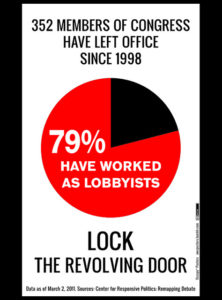Using PeopleCount, American voters will become much better informed. The last article discussed how being well informed is crucial to the fire-ability aspect of political accountability, but Americans are not well informed. This article discusses how PeopleCount solves this problem.
1. People will feel they should keep informed about politics
You’ll vote on issues, so your opinion will matter. You’ll see that many other citizens have opinions. You’ll feel involved in politics, responsible. Learning about issues will become part of your patriotic duty in making government work. Political issues will seem more important, worth knowing about.
And PeopleCount will make being informed easy by providing links to information. (This will be mostly missing at the beginning, but will improve over the first year.)
2. People will want to know about our government
With political issues being more important, so will the shape and form of our government. It doesn’t matter day to day to most of us that there’s freedom of the press. But imagine you’re voting on issues involving the press.
Say you’re asked: Must the press be honest? Should we allow them to be sued if they knowingly say something that’s not true? What if what they say is misleading?
Say you’re asked: Should satirical websites should have a big “SATIRE” notice written every 2 inches, so people don’t accidentally think their news is true? And should political images that are not real be marked as such in a caption and in a watermark?
These kinds of questions will make people think harder about what “freedom of the press” means. Much of our educational system fails because the knowledge isn’t used- it doesn’t seem relevant. If we make political information relevant, more people will learn more about it.
3. We’ll know what other voters want
PeopleCount will tell us what we collectively think in our districts, states and in the country. It’ll be much better than polls. They just tell us the opinions of random people who have no idea they’re going to be asked about the issue. PeopleCount will report the opinions of people who care enough about an issue to vote.
Plus it’ll be constantly updated. People change their minds all the time. On PeopleCount, they’ll be able to change their votes. We’ll be able to see week by week, month to month how people’s desires for society are evolving.
4. You’ll know what your officials think and do
If you want to know what your representative thinks, a link to his/her report will be right there on the same page as the issue. Click a link and read it.
Plus, you’ll be able to read the reports of challengers. They’ll be quick to call attention to any lies or half-truths told by the incumbent.
Knowledge is power
It’ll be empowering to be asked for our opinions and see the total votes. We will feel responsible for guiding Congress. The responsibility of voting and grading our officials will give all of us a tangible reason to be informed.
Being better informed, we’ll make better choices in electing our officials. This is crucial for fire-ability, the third part of accountability.
Fire-ability also requires free and fair elections. The next article will be about free elections.



